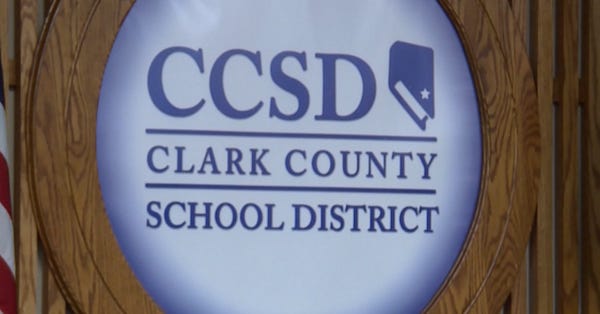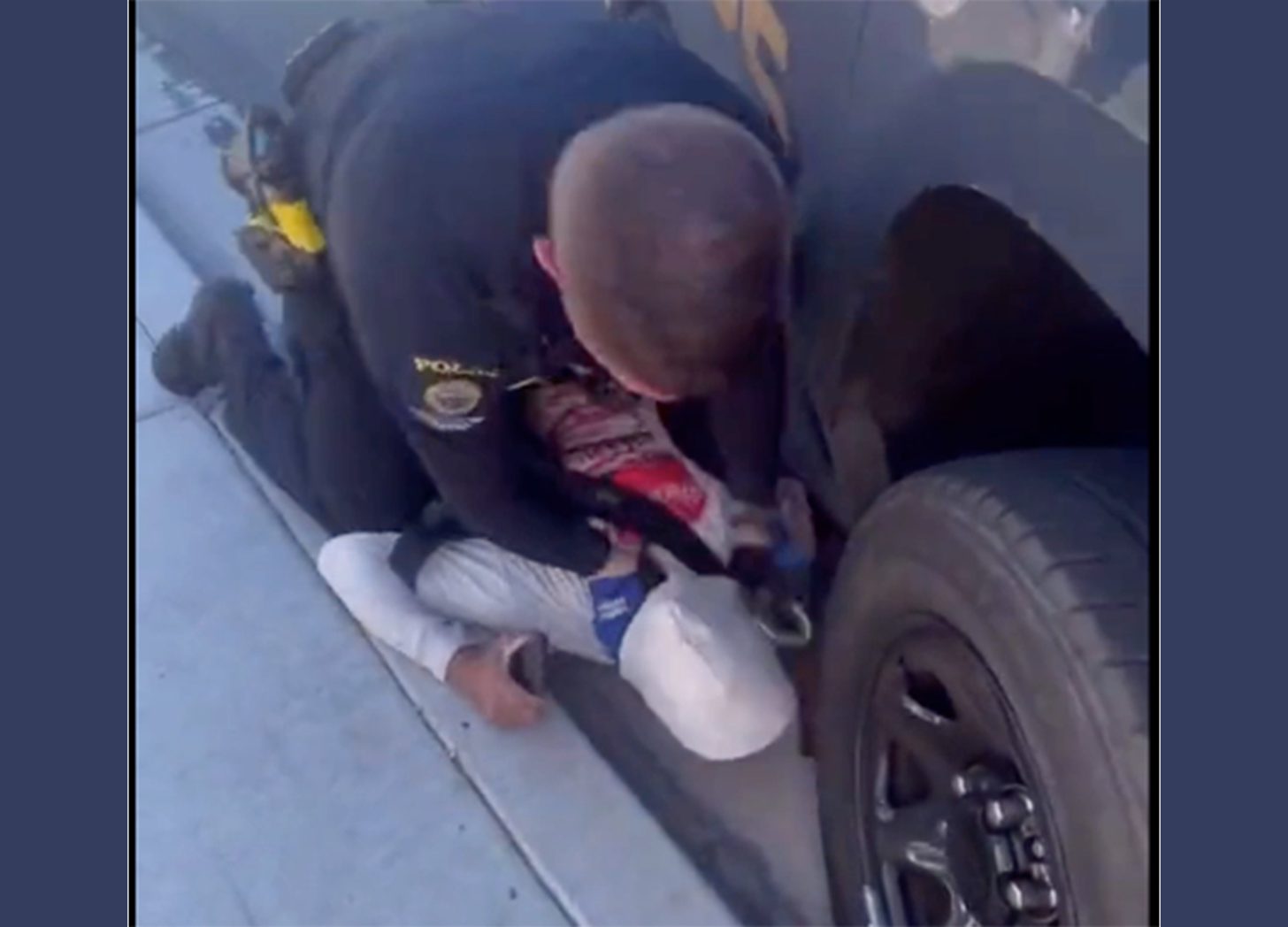Alec Karakatsanis likes to call people out. He likes to call out the media. He likes to call out Harvard professors. He likes to call out cops.
That last part is an important pronunciation guide. Because Karakatsanis writes an insightful SubStack called Alec’s Copaganda Newsletter. And it wasn’t till months after starting to read this SubStack, with its focus on police misconduct and its enablers, that I realized the name of his newsletter does not rhyme with Barry Manilow’s song.
He writes a newsletter about COPS. Police officers. Cop-a-ganda. Or as he calls it, the punishment bureaucracy.
Insert face palm emoji.
Karakatsanis comes with a healthy pedigree. He went to Yale for undergrad, then moved north to Harvard for law school, before making a name for himself practicing civil rights law. His newsletter is related to his work as the executive director of the Civil Rights Corps, which he also founded.
Karakatsanis recently wrote a 3-part series on how journalists get their sources. In particular, he calls out the New York Times for reporting on what it called a “scathing… independent report” on how police acted in Los Angeles during the 2020 protests following the murder of George Floyd. The report used euphemisms like “missteps” and “ill-prepared.” Its conclusion was that police needed more and better training… and that the county and state should spend more money to make that happen.
But in a compilation video Karakatsanis posted showing police officers from all over the U.S. in 2020, it doesn’t look like the cops are unprepared and untrained. Their actions are all pretty similar, which leads to the conclusion that they not only received training, but the same training.
Indeed, as Karakatsanis details, for the last 100 years, police violence has been met with police reforms that infuse more money into more cops and more cop toys, and yet police violence toward civilians has risen every year.
Right on cue, as his series was published, we were watching the horrific videos of a Memphis special forces police unit beating Tyre Nichols to death.
The New York Times piece (as well as this follow-up) was written before Nichols was murdered, but I doubt the Times reporters would have included it as context. Indeed, one of the journalists (of Nicholas Bogel-Burroughs, John Eligon and Will Wright) told Karakatsanis that they weren’t writing about police violence, they were just writing about the report.
That made me laugh out loud.
Because the truth is most journalists are cowards, cowards who hide behind “official reports” and “objectivity.” To choose to write about the history of “police reform” or the context of other, similar police violence, would be, for the Times journalists, to take a side. That side would be “police reform has a long history of not working.” A story like that might even include voices who could inform the conversation about how it could work. In other words, it would be elevating the voices of “activists” over the voices of “officials.”
Heaven forfend!
Even if we accept that the Times journalists were writing only about the report, they left out a key context, according to Karakatsanis:
The supposedly “independent” report about the failures of LAPD was in fact written by six former LAPD officials.
Of course it was. Because that’s how it works. Public officials hand-pick the people who will give them good PR and what they want. In this case, the good PR was to be “scathing.” A public calling out. To be followed by public contrition and a “solution.” It’s a well-played ritual. But, as Karakatsanis notes, the solutions in the report read “like an unhinged wish list of police union and police leadership fantasies: huge budget expenditures for new technology, weapons, and training.”
That’s not something journalists are going to reveal, because 1) we don’t tend to see it - “more training” is always the answer and we tend to go with what we have seen before; and 2) it would look like we were taking a side. We can’t offer alternatives to the dominant narrative; we can’t include facts that aren’t fed to us, because someone might call us “biased” or, worse, “liberal.” We were all taught that you can’t report on something without an official report or legal filing. Then, data was added into the mix - for those few journalists who actually like details. And now, we can include video. But if you don’t have any of that, then how is a journalist supposed to believe you? Especially when you’re complaining about people in power?
Legal Cover
So we write about reports. And we write about lawsuits. And when a problematic video surfaces of, say, a school police officer slamming a student to the ground for using his phone camera, we say, as Fox 5 in Las Vegas did in early February, that it “appears” that something happened, but we can’t trust our eyes, and we forget to ask why it happened. We let others tell us “both sides.” In this instance, the “other side” of what Michael Bell and Joe Vigil were actually seeing on the video was CCSD superintendent Jesus Jara saying “there was a report of a firearm near one of our schools.”
Context would be helpful here. Because what I see is “there was a report of a firearm near one of our schools and a bunch of white officers saw a bunch of Black kids walking down the street and assumed the ‘report’ and the kids must be related.”
Also, I doubt there was such a report. Which is even sadder. The excuse given by CCSD was, essentially, “our cops are racist and assumed ‘firearm’ and ‘Black teens’ were synonymous,” when the truth may just be “lots of Black teens walking together” equals - to CCSD cops - “dangerous.”
Seriously, when you hit the realm where your excuses are just as racist as the reality, you might as well just tell the truth.
This lack of context characterized another report on CCSD that 8 News Now “investigative reporter” David Charms reported on - and tweeted about - back in January.


“A lawsuit alleges.” See. Charms doesn’t have to get context. He can just quote the lawsuit.
What he chooses to quote in the story tells us a lot, though. He used the word “pornographic” and “grooming.” Which should have been a clue to the context of the suit. It wasn’t that the words “dick” and “fuck” were in the monologue. It was that the monologue was about a girl telling her ex-boyfriend that she is a Lesbian. And the objection to it by the parents is part of a national right-wing push to cast queer people as “groomers and pedophiles.” Schools in Florida and many other states cannot have “Heather Has Two Mommies” in their libraries, because people who see queerness only in terms of sexual activity have taken over the conversation.
Which is weird, by the way. It’s just weird.
The Las Vegas chapter promoting this slander is Power2Parent, whose representatives not only showed up to the May 12 Board of Trustees meeting (which I was at) with the mother, Candra Evans, who ended up filing the lawsuit, but then went into PR overdrive, running blogs, videos, facebook posts and press releases featuring Evans. These led to interviews with right-wing outlets like Newsmax and PostMillennial. Each of the right-wing outlets quoted the lawsuit describing the monologue - written by another student - as “obscenely graphic pornography.” But those outlets didn’t mention the “bad words.” They only mentioned that it was a monologue about a girl coming out as Lesbian.
I expect that from right-wing news outlets. I expect it less from TV journalists who have a wide, bi-partisan audience. But Charms was using the old, cowardly journalism practice of quoting the lawsuit, not the context. He never once mentioned P2P - whom Evans thanked at the board meeting. He never once made the obvious link to the larger anti-queer fear-mongering around the country. He never once asked why, as Evans stated herself, she was checking her daughter’s backpack two months after the assignment. Could it be because Power2Parent had made frequent calls for parents to do so?
Also, who’s paying for this lawsuit? Did Charms ask that?
I’m left with the conclusion that David Charms supports Power2Parent, and thinks that Lesbians are “pornographic.” He gave gravitas to a lawsuit that was likely only filed to take advantage of the fact that journalists would report on it, and will probably get thrown out in court. And less engaged viewers will go away believing that maybe these anti-gay people might be onto something.
The Latest Failures
As I noted, Karakatsanis’ series about cops came out just as the videos of Tyre Nichols’ murder were released. I found myself wondering how our local journalists handled this. So, I checked out the coverage. Most TV journalists simply ran statements from Nevada public officials. They did not, for context, mention the ongoing lawsuit from the family of Jorge Gomez - who was shot by officers 19 times in 2020. I should note vis a vis the headline, that Nevada is an open carry state, and there were a number of white militia types carrying guns at the protests downtown. They were not arrested or shot, much less 19 times.
The Review Journal - Vegas’ daily newspaper - did a piece on the local “rallies” held after the Nichols’ videos were released. The paper noted the next day, in a headline no less, that the “rallies” remained peaceful - which tells me they were expecting something different.
Like, if I say, “My kid didn’t argue with me this morning,” you are going to assume that my kid usually argues with me.
My old show, KNPR’s State of Nevada did take a look at police reform. It was a well-intentioned effort. Except… a show note reveals that they tried to get Black activists to the studio, but none would come, citing the false balance framing of the panel (and, I would assume from the complaints I frequently hear, the show in general). Who was on? A Las Vegas Metropolitan Police undersheriff. A criminal justice professor who has criticized police, and has tried to work from within to reform them. And a former police officer who has ideas about how reform can work. In other words, cops.
Let’s just note here that the false balance framework was more important to KNPR than interviewing the people affected by bad policing without cops there.
Oh hell, let’s just use it. 🤦🏻♀️




